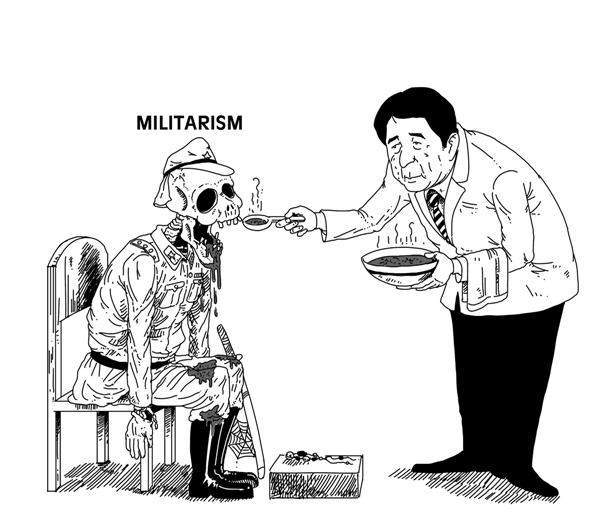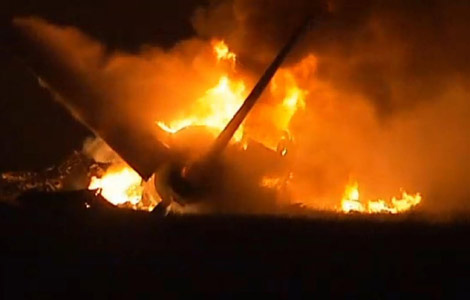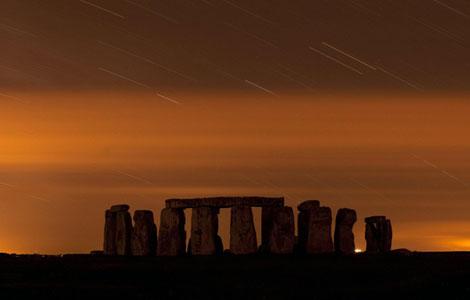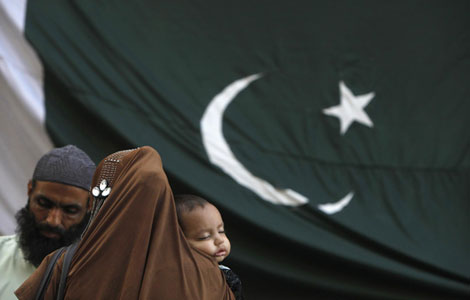

 |
| Cartoon by Li Feng |
But the conservative party leader has since changed his attitude about a shrine visit and voiced ambiguity about it after the party's landslide victory in the upper house election in late July.
On Aug 6, the prime minister publicly refused to answer a question about whether he will visit the shrine on the anniversary of Japan's surrender.
"Not paying tribute to the shrine does not necessarily mean Abe has given up his right-wing pursuits. His previous remarks about his not visiting the shrine reflects the ingrained wish deep in his heart," Zhang said.
The conservative ruling party now holds the majority in both the upper and lower houses, a situation that critics say has given the Abe Cabinet a bigger say in forming diplomatic policies.
Zhou Yongsheng, a Japanese studies expert at China Foreign Affairs University, said Abe is now tweaking his policies regarding China and South Korea "with less fear of the pressure being exerted by the right-wing radical voters.
"But we should never consider such maneuvers as a major change in policies toward China. The hawkish prime minister will continue showing toughness in issues involving his country's interests, such as territorial disputes," Zhou said.
The Japanese government made a unilateral, illegal "purchase" of part of China's Diaoyu Islands in the East China Sea in September, leading to deteriorating ties with China.
As a prominent political figure famous for his conservative and pragmatic style, Abe is seeking to repair Japan's relationship with China and revive his nation's economy, Zhou said.
Meanwhile three prominent Cabinet members are likely to visit the sensitive shrine on Thursday, local media reported.
Administrative Reform Minister Tomomi Inada, Internal Affairs and Communications Minister Yoshitaka Shindo, and Keiji Furuya, chairman of the National Public Safety Commission, have signed up for approval from the prime minister's office, Japan's Fuji Television reported on Wednesday.
Contact the writer at [email protected]







